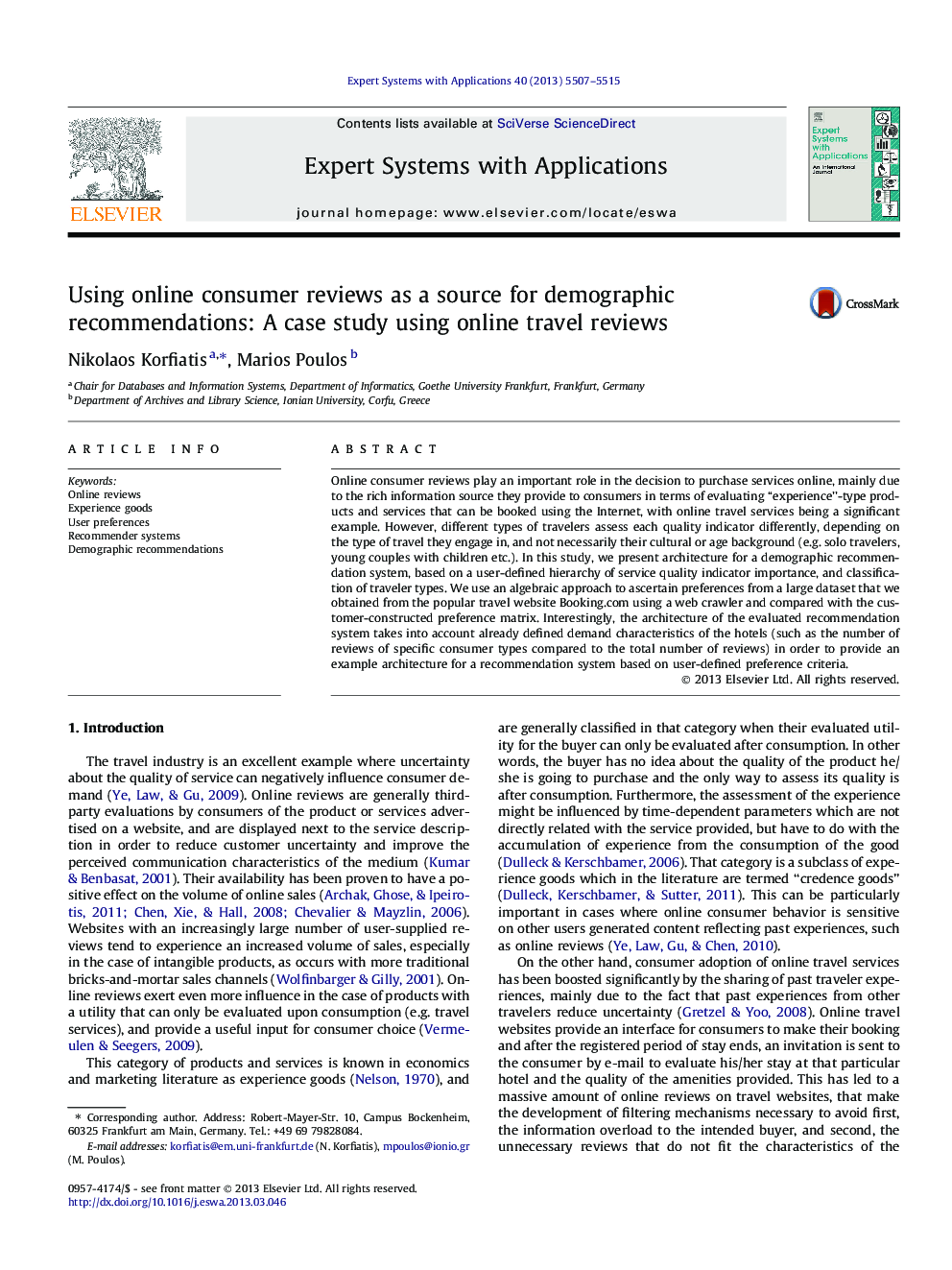| Article ID | Journal | Published Year | Pages | File Type |
|---|---|---|---|---|
| 383446 | Expert Systems with Applications | 2013 | 9 Pages |
•Illustrates the use of online reviews can as input on a demographic recommender system.•An architecture is provided along with an experimental evaluation.•Uses identification tests for classifying raters with similar demographics.•The recommendation process becomes more efficient using this semi-supervised approach.
Online consumer reviews play an important role in the decision to purchase services online, mainly due to the rich information source they provide to consumers in terms of evaluating “experience”-type products and services that can be booked using the Internet, with online travel services being a significant example. However, different types of travelers assess each quality indicator differently, depending on the type of travel they engage in, and not necessarily their cultural or age background (e.g. solo travelers, young couples with children etc.). In this study, we present architecture for a demographic recommendation system, based on a user-defined hierarchy of service quality indicator importance, and classification of traveler types. We use an algebraic approach to ascertain preferences from a large dataset that we obtained from the popular travel website Booking.com using a web crawler and compared with the customer-constructed preference matrix. Interestingly, the architecture of the evaluated recommendation system takes into account already defined demand characteristics of the hotels (such as the number of reviews of specific consumer types compared to the total number of reviews) in order to provide an example architecture for a recommendation system based on user-defined preference criteria.
